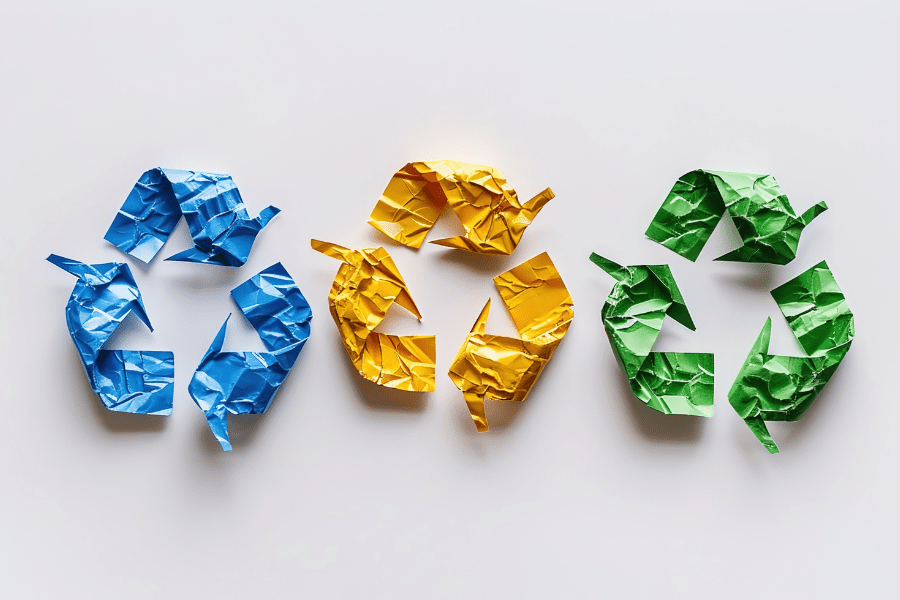
How to incorporate sustainability into your everyday life
With the current state of affairs and the weekly climate change stories gracing the news, many of us are trying to do our bit for the planet by being more sustainable. Here at Hedgy, we are passionate about sustainability and trying to do our bit for the planet, so if you’re wondering how to be sustainable in everyday life, we are here to help!
What if we told you that you don’t need to do something major to help the planet? In this article, we will explore what we mean by sustainable, explain why even small steps matter, and give you eight ways to be sustainable in everyday life by slightly amending your current daily routine!
What is sustainable living?
According to the UCLA Sustainability Committee Charter, sustainability is “the integration of environmental health, social equity and economic vitality to create thriving, healthy, diverse and resilient communities for this generation and generations to come.” Simply put, sustainable living refers to a lifestyle that aims to reduce the use of the Earth's natural resources to benefit current and future generations. This involves making conscious choices that promote the health of our planet, such as reducing waste, conserving energy, and supporting local economies.
By embracing sustainable practices, you can help create a fairer and more balanced world. This way, we can protect our natural resources for future generations while supporting our communities and taking care of the environment.
How to become more sustainable in everyday life?
So, now you know what sustainability means, you might be wondering how to be more sustainable. We’re here to help with our top eight tips to incorporate sustainability into your daily routines!
Walk, bike or use public transport
Road travel is the largest emitting sector of greenhouse gas emissions, accounting for 91% of the 99 million tonnes of MtCO2e that domestic transport in the UK emits. Walking or riding a push bike is the most sustainable form of transport; however, consider using public transport for those longer journeys. When you use public transport instead of travelling by car, you are reducing carbon emissions by 42% when travelling by bus, and 73% when travelling by train! Additionally, public transport options can help reduce traffic congestion, leading to smoother journeys for everyone.
By choosing to walk, bike or take public transport, you’re not only making the greener choice, but you’re also reducing the amount of traffic on the roads, making travel safer and smoother for everyone!
Shop sustainably
When it comes to shopping, making mindful choices can significantly impact the environment. There are a few different ways you can do this:
- Shop local: Supporting local businesses not only reduces the likelihood of goods being transported long distances, but it also boosts the local economy!
- Buy sustainable materials: Choose products made from sustainable materials. Here at Hedgy, our products are made from sustainable materials such as bamboo and our packaging is fully recyclable.
- Buy second-hand: Buying second-hand items helps to reduce waste and prolong the life of goods.
- Only buy what you need: Be mindful of your consumption habits and only purchase something if you truly need it or will get a lot of use out of it.
By shopping mindfully and sustainably, you can contribute to a healthier planet and reduce waste!
Donate to charity
In 2023, only 58% of people donated their pre-loved goods to charity, falling from 65% in 2019. With this in mind, if you no longer wear or use any of your things, but they’re still in good condition, make sure to donate them to a charity shop. This will prevent wastage and ensure that decent items get to be reused by less fortunate people.
As well as this, donating to charity reduces the demand for new products, helping to cut down on the resources and energy needed for manufacturing. So, the next time you have a clearout, think about the positive impact your donations can make on both people and the planet!
Grow plants in your garden
Growing plants is a simple yet rewarding way to contribute to sustainability. Whether you have a large outdoor space or a small window box, planting flowers, vegetables, or herbs can help reduce your carbon footprint.
Plants improve air quality by absorbing carbon dioxide and releasing oxygen and providing a habitat for pollinators like bees and butterflies. As well as this, growing fresh herbs or vegetables reduces the need for supermarket-bought produce, cutting down on packaging waste and the emissions from transporting goods.
Eat less (and better) meat
Did you know that the production of meat and dairy products accounts for 14.5% of global greenhouse gas emissions? As well as this, an investigation by Trase found that up to 5,800 sq km of rainforest in the Amazon and beyond is being felled every year to make space for cattle farming, with livestock from these deforested areas supplying abattoirs producing beef to be eaten across the world!
By reducing your meat consumption, you can help lower your carbon footprint significantly. Even having a meat-free day once a week can make a difference! When you do eat meat, try to purchase sustainably sourced options, such as grass-fed, organic, or locally farmed meat, which tends to have a smaller environmental impact. Supporting farmers who prioritise ethical and eco-friendly practices can promote better treatment of animals and a reduction in harmful farming techniques.
Reduce water
These next two tips don’t only help with sustainability, they also help to reduce your bills at the same time! Over 3 billion litres of good, clean water is being wasted every day in the UK, from leaving the water running when brushing our teeth to over-filling the bath, to leaking pipes! Let’s explore why conserving water is hugely important for protecting the environment:
- Conserves limited water supplies
- Reduces energy use
- Protects ecosystems
- Reduces water pollution
Simple actions like turning off the tap while brushing your teeth, taking shorter showers, and making sure you have no water leaks in your home can make a big difference. Even installing water-saving devices like low-flow showerheads and dual-flush toilets can significantly reduce your water usage. Not only will you help protect a precious resource, but you'll also see the benefits in your bills.
Turn switches off
Another benefit to the environment and your bank balance - by turning plugs and switches off when your devices aren’t in use, you can save both energy and money! Many devices continue to use power even when they’re turned off. This wasted energy contributes to unnecessary greenhouse gas emissions.
By simply switching off TVs, chargers, and kitchen appliances at the wall when they’re not in use, you can reduce your energy consumption and cut down on electricity bills!
Recycle
You’ve heard of Reduce, Reuse, Recycle. You’ve probably been hearing about it since school! And yet so many people still don’t recycle! In fact, a new study has shown that 21% of British people don’t recycle at all, despite the positive environmental impact!
Recycling is a hugely important and relatively easy example of how to live sustainably. Not only does it reduce the amount of waste thrown in a landfill, it decreases the need for new natural resources and fossil fuels, and can cut CO2 emissions by an estimated 700 million tonnes annually!
By recycling materials like paper, glass, and plastic, you are reducing the demand for new materials and minimising the harmful impacts of waste on our environment, such as soil contamination and water pollution.
Why do small steps to sustainability matter as much as large steps?
Sometimes, the news about global warming can feel overwhelming. It might lead you to think that your efforts are too small to make a difference and that contributing to sustainability is pointless. But that couldn’t be further from the truth!
Think about it this way. Millions of people are making these simple adjustments in their daily routines, and these efforts add up to a substantial impact. Small changes not only reduce our carbon footprints but also help to build a culture of sustainability that encourages others to join. When we see our friends and family making conscious choices, it motivates us to do the same!
How Hedgy can help
As you know, here at Hedgy we are passionate about sustainability and creating a better environment for everyone. That’s why we manufacture our products in the most sustainable way we can, using environmentally friendly materials and practices! We also proudly support local environmental causes, so when you purchase from Hedgy you’re making a positive impact on the environment!
Browse our products today and take a step towards becoming more sustainable!

